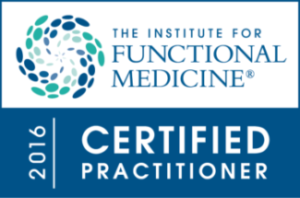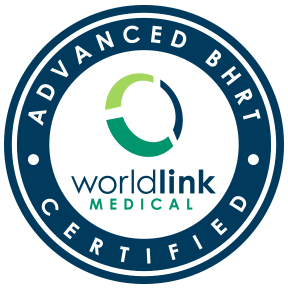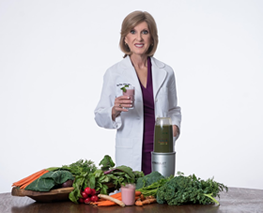6 Gut Health Tips from Digestive Health Specialists
The importance of restoring gut health is finally gaining attention among doctors and all across the internet. Doctors are helping patients restore gut health and speaking about this topic online. Even diet culture has latched onto gut health—it’s becoming the next fad diet trend!
Let’s cut the fluff and get to the bottom of gut health:
The basics of the gut start with facilitating digestion. Bacteria in the gut break down the food you eat and absorb the energy from what you eat. Without these nutrients and vitamins, your cells, tissue, and organs won’t be able to function properly.
And that’s just scratching the surface of gut impact. The gut makes up over 75% of our immune systems, and it also helps create “happy hormones” in the brain that affect our mental health.
Due to factors such as poor nutrition, allergies, toxic exposure, and stress, most people have an unhealthy gut. When the gut stops absorbing nutrients and defending from invasive bacteria, symptoms such as bloating, irritable bowel syndrome (IBS), anxiety or depression, and malnutrition develop.
The good news is that it’s possible to reverse these symptoms and give your gut the helping hand it needs to start working properly again. Here are 6 gut health tips from digestive health specialists like Dr. Cheryl Winter (DCN, FNP-BC/APRN, RDN, IFMCP).
1. Food is the Best Medicine
The American diet is high in processed foods and low in whole, nutrient-dense foods that nourish gut bacteria. Nutrition is one of the best places to start for someone wanting to restore gut bacteria.
A good rule of thumb is to reduce processed foods and eat more whole grains, lean proteins, and healthy fats. And don’t forget to incorporate plenty of fruits and veggies, which are loaded with fiber and healthy micronutrients!
Dr. Cheryl recommends making the following dietary changes for gut health patients:
- Eat an array of grains and lentils
- Get fresh fruits and vegetables
- Cook homemade meals
- Eat nuts everyday
- Drink lots of water
- Avoid artificial sweeteners and diet drinks
- Eat mindfully to avoid overeating
They say “food is the best medicine,” and Dr. Cheryl makes nutrition a priority with every patient but especially when treating digestive health.
2. Give Your Gut a Boost
In addition to improving your diet, some foods contain healthy bacteria that promote a healthy gut:
Yogurt. If you aren’t avoiding dairy, yogurt is a great food to start incorporating into your diet. It’s available in every grocery store and can be used in just about anything! Add a scoop over a bowl of whole-grain oatmeal, blend into a smoothie, or make a yummy savory dip with veggies. When shopping for yogurt, be mindful that it contains live bacteria cultures and isn’t loaded with added sugar.
Kombucha. Another delicious and easy item to add to your diet! If you love soda, this is a great alternative that isn’t loaded with sugar and will make your gut feel even better. There’s a flavor for everyone!
Cheese. Many types of cheese contain live cultures, just like yogurt. Whether eaten on your favorite type of pizza or as a simple high-protein snack, this should be an easy way to get more healthy gut bacteria!
Sauerkraut. This is one of the best gut foods out there, loaded with fermented bacteria and loaded with vitamins. If you’re not already a sauerkraut fan, try “sneaking” it into your favorite recipes.
3. Detox Your Body
Inflammation is another huge reason why people end up with an unhealthy gut. When the body is inflamed, it diverts most of its energy to the site of inflammation, and there isn’t any energy left for healing the gut. The body normally becomes inflamed when it has to deal with harmful bacteria, toxins, parasites, or allergy triggers.
Many people are living with serious inflammatory triggers: foods they’re actually allergic to, constant toxin exposure, and even invasive parasites!
It takes professional help to properly diagnose and treat these inflammatory triggers. Dr. Cheryl provides her patients with tests for parasites, allergies, and toxins and helps them detox. When the body isn’t stuck playing “catch up,” it’s finally able to get that gut back in alignment!
4. Stay Active
Physical activity is beneficial for just about every aspect of health: better mood, improved strength, stress relief, and improved flexibility.
Did you know that exercise also strengthens the immune system and gut? In addition to feeling better and getting stronger, you can expect your gut health to improve.
You don’t have to buy a pricey gym membership or start deadlifting 500lb dumbbells. Start small by incorporating more movement into your day: go for a walk, fold the laundry, do the dishes, etc. Consider workout videos on YouTube and make sure you’re strengthening your muscles and doing cardio to keep your heart strong. And don’t forget to stretch to keep your body limber and avoid injury!
5. Manage Stress
Most of us are dealing with chronic levels of stress and anxiety, which are major factors behind poor gut health. Scientists have nicknamed the gut microbiome as “the second brain” because of its direct link to our mental health.
The gut helps produce hormones and endorphins, such as serotonin and dopamine. Along with other important hormones, they regulate our mood and help us feel calm and at peace.
Gut and mental health is a two-way street. On one hand, an unhealthy gut means you feel more anxious and stressed. At the same time, stress and anxiety damage gut bacteria and our immune systems. This vicious cycle is hard to escape!
No matter how you’re doing physically, your mental health is important. Practice self-care techniques such as journaling, mindfulness, or deep breathing. Don’t be afraid to reach out to a professional to learn ways to manage stress and anxiety. Your gut health—and your entire health—will benefit because of the work you put in to take care of yourself.
6. Work with a Digestive Health Specialist
A functional medicine doctor and/or digestive health specialist is the best way to get results that last for good. Dr. Cheryl Winter helps patients reverse illness, restore gut health, and get back to feeling their best. She offers an array of treatments, from hormone therapy to nutrition counseling to digestive health. Get connected today and say hello to vital health.








